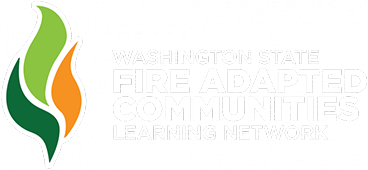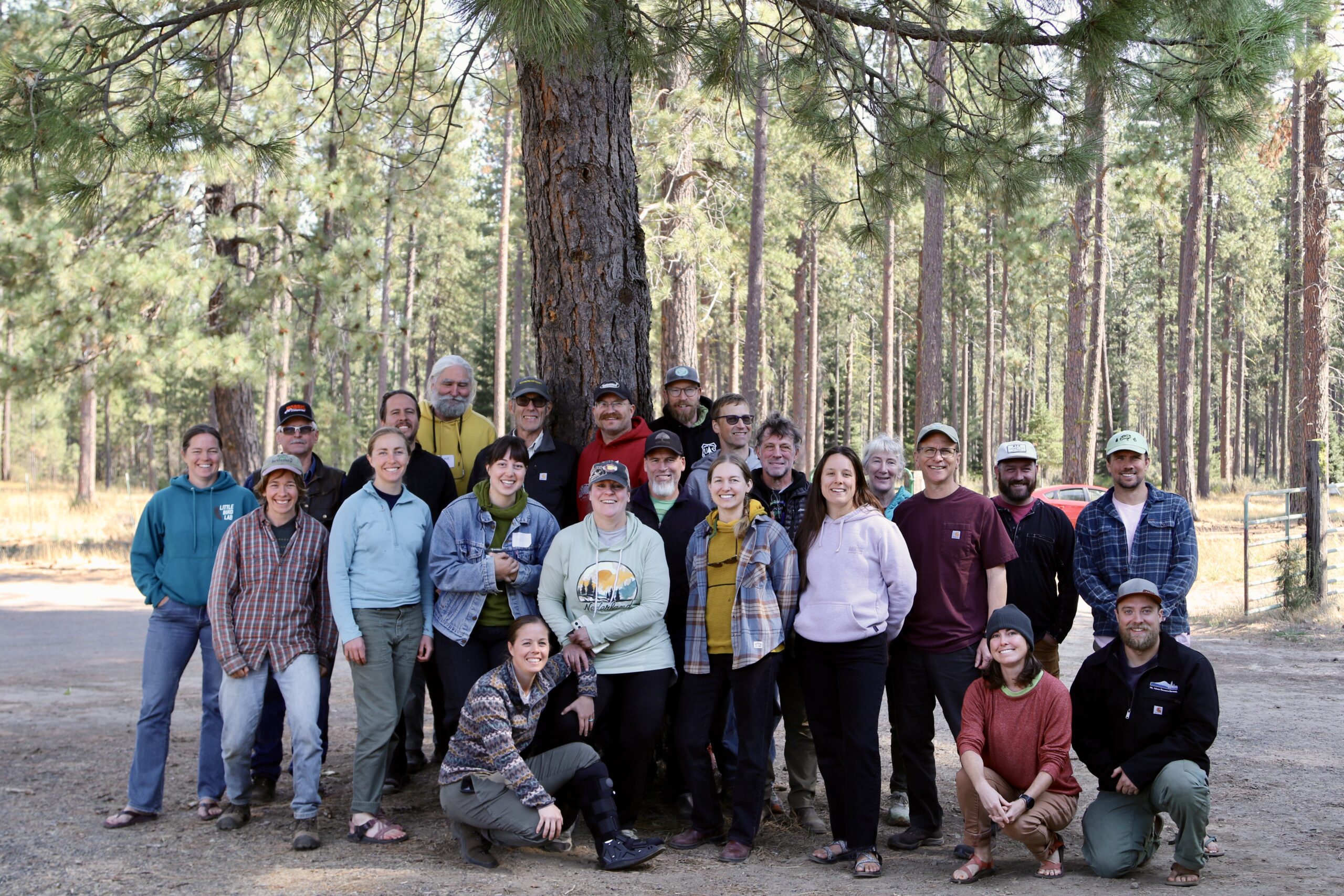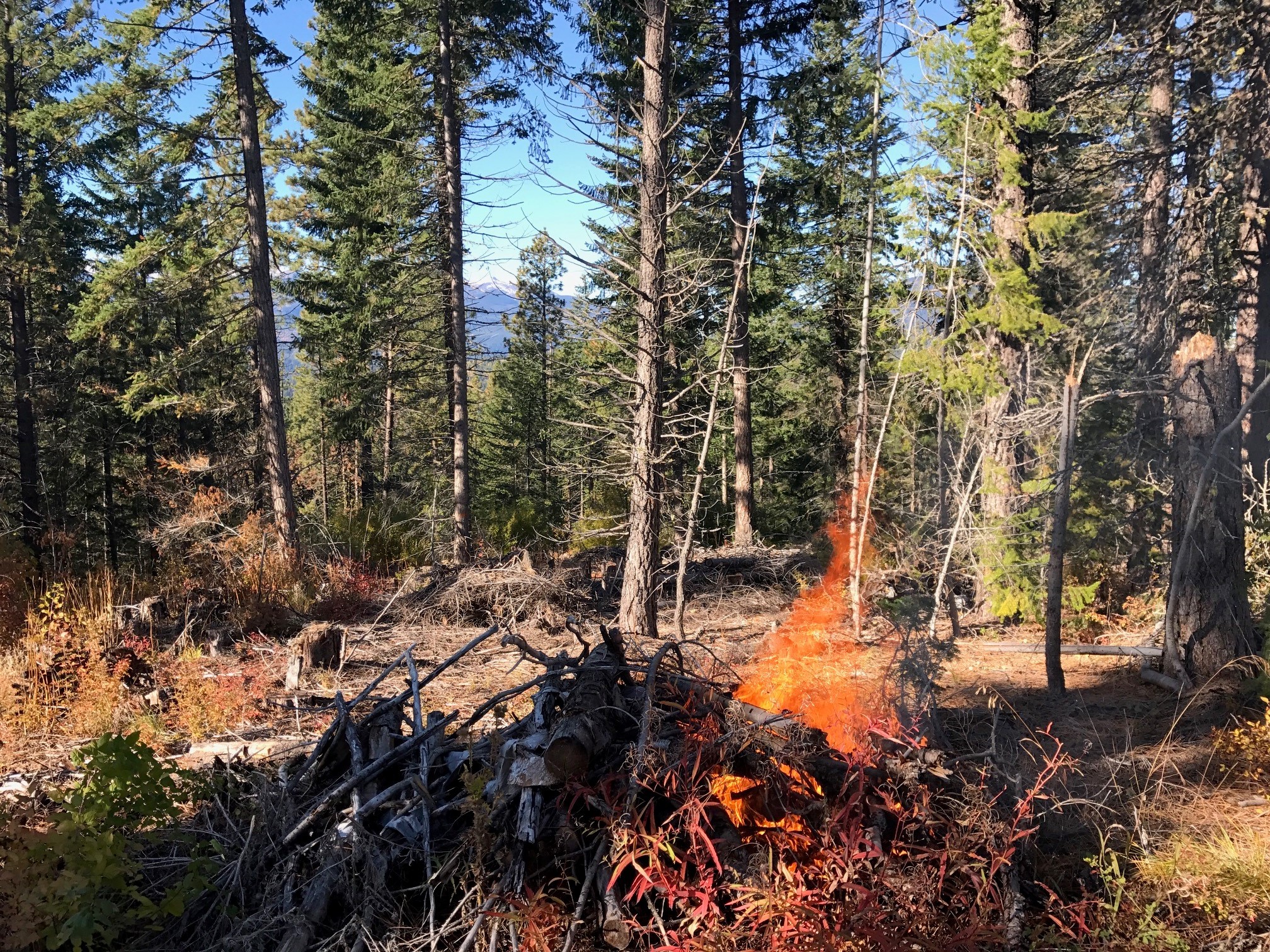Cayuse Cove, Lake Roosevelt after the Hart Road Fire. Photo credit: Val Vissia, Lincoln County Conservation District
Photo: http://archive.fireadaptedwashington.org/wp-content/uploads/2017/03/Lincoln-Regrowth.png
The impact of this statement still rings in my ears. Never is a long time particularly if you are standing on a piece of land that you had hoped to pass on to your children’s children. That never can become a reality for many after a wildfire.
The impact of a wildfire can live on in many ways, even if no structures were damaged and no lives were lost. The value of the “beauty” of land is sometimes under-appreciated especially by those of us who live in the middle of said beauty every day. How is it so easy to take it for granted? After this past summer’s Hart Road fire, I’ve tried hard to appreciate the beauty of this amazing area every day.

Fires are a part of Eastern Washington summers just as much as hiking, swimming, boating, camping and enjoying the beauty of this incredible area. We’ve been lucky out here recently but everything changed last August. Three fires broke out on the same day – from north of Spokane to the south of Spokane and here in Lincoln County. It was definitely an “all hands on- deck” situation. Resources were going to be tested.

I live in the middle of this beautiful area and on that day in August I was in Spokane sitting outside having lunch with my Mom. You could feel the weather changing – the wind started picking up. Sustained winds, not just gusts. As I headed home my husband texted me “if you see smoke don’t worry”. As I turned onto the Interstate and saw smoke south of Spokane I didn’t think much about it. It was windy, it was August and it was harvest. But then, as I headed West, I saw the smoke he was talking about. It was right over the top of us – or so it seemed.
By the time I made the 45 minute drive (which probably only took me 20) the fire was rolling. We live between two canyons and have had our fair share of fire scares over the last 16 years but this one was different. While I was driving, my husband and neighbors were filling water tanks and doing what they could – out here we are an all volunteer fire department and everyone was trying to do something/anything to help, but this fire blew up and was heading for the river and level 3 evacuations were now in place.


As I came to the top of a hill on the county road to our house many of my neighbors along with my husband were there watching the fire run. Many of my neighbors who live along the river had already been evacuated and were trying to get more information. My phone was blowing-up with offers of help. “Do you need to evacuate”? Our closest friend and neighbor and a third-generation farmer was nervous – he’s seen many fires out here and all he said was – “this is a bad one”. People who were out on the river enjoying a beautiful August Sunday were soon facing a wall of fire.

The Hart Road fire eventually jumped the river and crossed into Stevens County burning 5000+ acres in Lincoln County and 18,000+ across the river. Taking with it homes and structures along the way, and the beauty of this diverse countryside with it. For my family that day we got lucky! The wind was in our favor. Many of our neighbors were not so lucky.


When your neighbors are involved in a devastating fire what do you do when you are the agency appointed for post fire assistance? Will it be different because you know most of them? Will it be harder or easier, or will you just do what you’ve been trained to do? Yes! Yes, to all the above. As soon as it was safe our District Manager was out visiting with people affected by the fire, getting the word out that the Conservation District was here to help. Our County Fair was going on at the same time, and I was at the booth talking to people about post fire assistance and home assessments, and how to become Firewise. With smoke still in the air our booth was very popular. Maybe we’d finally get our first Firewise Community.

As the weeks went on in our post fire recovery mode, and we continued to get more instructions on our next steps, we spent more and more time in the field visiting with those who had lost the most. Humans are a resilient bunch. Standing with a landowner where his home used to stand and hearing the story of how he and his wife were in town when the fire started. How they got the call from their daughter that the flames were in the backyard and how he’s thankful that most of the livestock made it. To visit with others where no structure was lost but the physical devastation is overwhelming.

It will never look the same! The differences were striking to me in how people reacted. Those who lost the most seemed to be the most realistic, and those who lost no structures, no livestock were having the hardest time because what they had lost was not quickly replaceable. You can’t grow trees overnight. Only time will heal that wound. Was I prepared to help them in the way they needed? Did I have appropriate training and can I be a good listener and guide them on what type of recovery applications will be the best for them? Can I cheerlead? Can I be comforted?

I live where I do because of the beauty of the land just like many who were affected by these fires. The trees and canyons that surround my place and the knowledge that my husband’s and my hard work for many years will be worth it for our children’s children. I get it! I know exactly how it feels, I think, except I haven’t experienced a wildfire on my property so I don’t really. So I listen and I try to imagine how I would want to be treated? How would it feel to wake up and not see the magnificent view I’ve had for the last 16 years? Would I be able to see the beauty that was still there? Would I be patient in figuring out next steps? Or, would I be devastated knowing that in my lifetime, it will never look the same? For many homeowners, coming to the realization that “different” doesn’t have to mean “ugly” or “destroyed” is the first step in accepting this new reality of living with wildfire.
It will never look the same! The differences were striking to me in how people reacted. Those who lost the most seemed to be the most realistic, and those who lost no structures, no livestock were having the hardest time because what they had lost was not quickly replaceable. You can’t grow trees overnight. Only time will heal that wound. Was I prepared to help them in the way they needed? Did I have appropriate training and can I be a good listener and guide them on what type of recovery applications will be the best for them? Can I cheerlead? Can I be comforted?
I live where I do because of the beauty of the land just like many who were affected by these fires. The trees and canyons that surround my place and the knowledge that my husband’s and my hard work for many years will be worth it for our children’s children. I get it! I know exactly how it feels, I think, except I haven’t experienced a wildfire on my property so I don’t really. So I listen and I try to imagine how I would want to be treated? How would it feel to wake up and not see the magnificent view I’ve had for the last 16 years? Would I be able to see the beauty that was still there? Would I be patient in figuring out next steps? Or, would I be devastated knowing that in my lifetime, it will never look the same? For many homeowners, coming to the realization that “different” doesn’t have to mean “ugly” or “destroyed” is the first step in accepting this new reality of living with wildfire.
This winter has been long but we’re thankful for the snowpack we’ve received in Lincoln County. Before the snow came the blackened hillsides were popping with life and greening-up. Birds were already returning and in some areas larger animals were also resurfacing. Fire does change things but as one of the many agencies working on fire recovery we do what we can. We work in the fields, we visit landowners and provide technical help. We work alongside other agencies finding the best and hopefully the quickest methods of providing assistance. And yes, we cheerlead a little and comfort and listen. We know it’s going to take time, but the forest is resilient and will continue to grow and change and maybe never doesn’t always mean forever?





